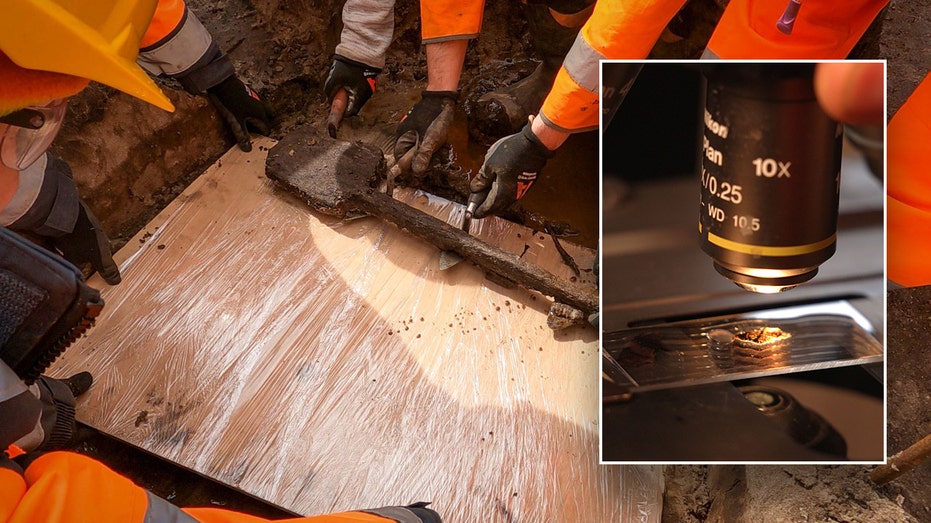A rare 3,500-year-old tool was discovered in the UK.
A routine excavation turned out to be a historical one for archaeologists in Britain when they came across a well-preserved ancient tool from the Bronze Age.

A wooden instrument that turned out to be one of the oldest and most complete ever found in Britain was found by archaeologists from Wessex Archaeology when they were excavating in preparation for a habitat project.
This Thursday, Wessex Archaeology released a news release announcing the ancient discovery.
"Only a few pottery shards and some flint were found during the early stages of the excavation near Poole Harbour at a construction site in a diverse wetlands habitat," said Greg Chuter, an archaeologist with the Environment Agency, in a video released by Wessex Archaeology.
The finds weren't of much significance until the wooden tool was uncovered.
Preliminary scientific dating of the tool dated it to the Bronze Age, roughly between 1500 and 1400 B.C., according to Wessex Archaeology's Ed Treasure, who spoke about the find in the video posted by the archaeological company. Radiocarbon dating was used to date the tool to between 3,400 and 3,500 years old.
"This is an incredibly exciting moment, and we’re looking forward to finding out more as the process unfolds," Treasure said of the find.
The tool, made from just a single piece of wood, likely took many hours to create, according to Wessex Archaeology, and it was a valuable tool over 3,000 years ago.
"We're working across a vast landscape that is dominated by nature with very little to suggest to the naked eye that much human activity has taken place here," Chuter said in a news release.
"However, just beneath the surface, we've uncovered evidence of the ways humans have cleverly adapted to the challenges presented by this particular environment for over 3,000 years. The spade is a fascinating part of the story and, as research continues, we're looking forward to exploring the relationship between the spade and the ditch and what else they can tell us about life at Arne Moors 3,000 years ago."
Ancient wooden tools like these aren't discovered often. Its age and preservation both play a role in its uniqueness.
The last time a Bronze Age wooden tool was discovered in Britain with similar qualities was when the Brynlow shovel was found in a Cheshire mine in 1875.
The wooden tool most recently unearthed by archaeologists is also rare in its well-kept condition.
Tools made of organic material, like wood, don't often survive in the ground for so long, according to the news release from Wessex Archaeology.
The reason this tool remained in such great condition was due to its waterlogged environment.
The wooden tool remains under special care and is undergoing full conservation and further studies.






















